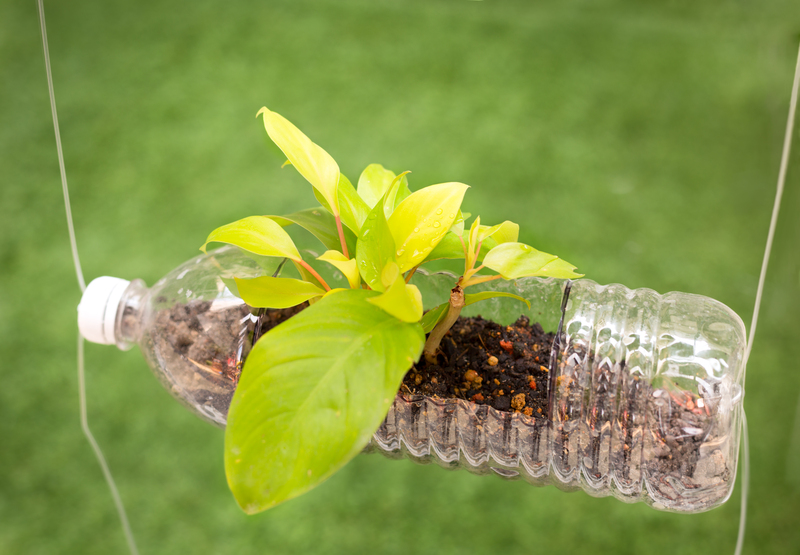Revamp Your Waste Habits with These 10 Green Solutions
As the urgency to address environmental issues intensifies, it's becoming increasingly important for each of us to rethink how we manage waste. Revamping your waste habits is not only beneficial for the planet, but it can also enrich your personal life. This comprehensive guide will equip you with ten innovative solutions to minimize your waste effectually and sustainably.
1. Embrace Composting to Reduce Food Waste
Composting is an effective method of diverting food waste from landfills, transforming it into nutrient-rich soil that nurtures new growth. Start by setting up a compost bin in your kitchen or backyard. Collect organic waste such as fruit peels, coffee grounds, and eggshells. Over time, these materials decompose, reducing landfill burden and enriching your garden soil.
Benefits of Composting:- Reduces methane emissions from landfills.
- Enriches soil, promoting healthy plant growth.
- Conserves water by enhancing soil retention.
How to Start Composting:
To commence composting, simply choose a composting method that fits your lifestyle, be it vermicomposting, tumbler bins, or traditional heap methods. Remember to continually layer your organic waste with brown materials like dried leaves or newspaper to balance nitrogen and carbon.

2. Adopt a Zero-Waste Lifestyle
The zero-waste movement encourages individuals to minimize waste in all aspects of life. By considering what you consume, you can significantly reduce your landfill contribution.
Steps to Begin a Zero-Waste Journey:
- Start by declining unnecessary plastic items, such as straws and utensils.
- Invest in reusable products like metal straws, cloth bags, and glass bottles.
- Practice the "refuse, reduce, reuse, recycle, rot" mantra.
Living a zero-waste life can help decrease environmental impact and simplify personal expenses over time, resulting in a more sustainable lifestyle.
3. Support Sustainable Brands
One crucial yet often overlooked method to revamp your waste habits is to support brands that value sustainability. These companies prioritize eco-friendly practices, offering products that are responsibly sourced, ethically produced, and designed to minimize waste.
Identify brands that are transparent about their manufacturing processes, use recycled or upcyclable materials, and practice fair trade.
4. Reduce Single-use Plastics
Single-use plastics are notorious for accumulating in our oceans and landfills, causing ecological harm. Cutting down on these plastics involves simple lifestyle adjustments that make a massive difference.
Tips for Reducing Single-use Plastics:
- Switch to stainless steel or bamboo alternatives for utensils.
- Carry a reusable tote for all your shopping needs.
- Choose loose produce over pre-packaged options.
Over time, these small changes culminate in significant reductions in plastic waste and foster a cleaner environment.
5. Leverage Technological Innovations for Waste Management
With technological advancements, numerous apps and tools can assist you in managing household waste efficiently. From apps that remind you of collection days to platforms sharing zero-waste lifestyle tips, the digital sphere is abundant with resources to aid in waste reduction.
Utilize Apps That Encourage Eco-friendly Practices:
- Download apps for waste reduction and recycling tips.
- Use digital platforms to connect with like-minded individuals for ideas and support.
6. Repair and Restore Before Replacing
In a world driven by fast fashion and consumerism, repairing items instead of mindlessly replacing them fosters sustainability.
How to Practice Repair Culture:
- Attend workshops or watch online tutorials to learn basic repair skills.
- Invest in repair tools like sewing kits or simple mechanical tools.
- Find local repair cafes or communities that encourage product longevity.
Repairing not only saves money but also reduces demand for resource-intensive manufacturing.
7. Implement Energy-efficient Practices
Waste isn't limited to physical trash. Energy waste comprises a large portion of environmental impact. By adopting energy-efficient habits, you can further reduce your ecological footprint.
Energy-saving Tips:
- Switch to LED lights, which are more efficient and last longer.
- Unplug devices when not in use to cut down phantom power drain.
- Consider energy-efficient appliances that conserve resources.
Combined, these practices ensure less energy is consumed, leading to a more sustainable lifestyle.
8. Opt for Eco-friendly Packaging
Packaging contributes significantly to waste generation. Opt for products with minimal or recyclable packaging. Brands offering bulk dispensing can help further minimize your waste output.
Take notice of brands that utilize biodegradable or compostable packaging. These materials break down quicker in nature without leaving harmful residues.
9. Educate Yourself and Others
Empowerment through knowledge can create a ripple effect of sustainability. Learn about the environmental impact of waste and share insights within your community.
Ways to Spread Awareness:
- Join local environmental groups or organizations.
- Host workshops or informational sessions about waste reduction.
- Encourage schools to integrate environmental science into curricula.
Education fosters a mindset that prioritizes the planet, perpetuating sustainable practices across generations.

10. Seek Community-based Solutions
Individual efforts multiply through community involvement. Engaging with community-based solutions can support broader environmental change.
Community Steps to Sustainability:
- Participate in local cleanups to address community waste.
- Advocate for community composting systems and recycling programs.
- Collaborate on urban gardening projects that utilize compost and promote biodiversity.
Conclusion
By implementing these ten green solutions, you can revamp your waste habits and take meaningful steps toward a sustainable future. Remember, every small action counts, and collectively, we can make a substantial impact on alleviating the environmental burden. Embrace these changes not only to protect our planet but to inspire future generations to prioritize sustainability in every aspect of life.